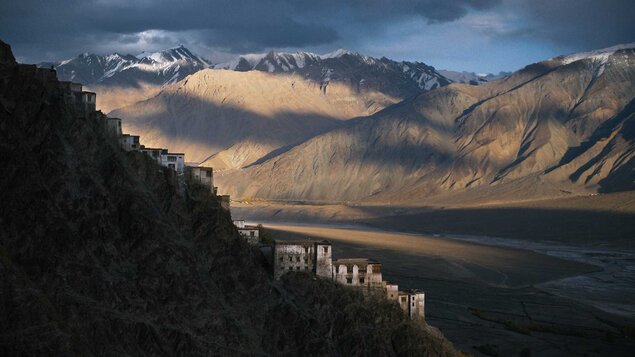Poslední expedice (Jeden Svět 2025)
| Režie: | Eliza Kubarska |
| Délka: | 85 minut |
| Žánr: | Dokument |

Koupit vstupenku
Režie: Eliza Kubarska
Než se vydala na svou poslední expedici, řekla matce, že pokud se z třetí nejvyšší hory světa nevrátí, bude to proto, že se někde v nepálských horách stala jeptiškou. Polská horolezkyně Wanda Rutkiewicz byla naposledy spatřena 13. května 1992, jak míří k vrcholu hory Kančendžengy, kterou místní obyvatelstvo považuje za posvátnou. Její tělo se nikdy nenašlo.
Režisérka a horolezkyně Eliza Kubarska vytváří ve svém filmu mnohovrstevnatý portrét Wandy Rutkiewicz – silné, cílevědomé ženy, která vstoupila do tehdy převážně mužského světa vysokohorských expedic. Osou vyprávění je zvukový deník, který si Rutkiewicz nahrávala. Rozebírá v něm otázky povahy mezilidských vztahů, svobody, nezávislosti či smyslu života. Součástí filmu jsou také rozhovory s mniškami nepálských řádů a s osobnostmi horolezecké komunity: Reinholdem Messnerem, Krzysztofem Wielickým nebo Carlosem Carsoliem.
Before setting off on her last expedition, she told her mother that if she didn’t return from the world’s third highest mountain, it would be because she had become a nun somewhere in the Nepalese mountains. Polish mountaineer Wanda Rutkiewicz was last seen on May 13, 1992, heading towards the summit of Mount Kanchenjunga, which the local population considers sacred. Her body was never found.
In her film, director and mountaineer Eliza Kubarska creates a multi-layered portrait of Wanda Rutkiewicz – a strong, purposeful woman who entered the then predominantly male world of high-altitude expeditions. The narrative is centered on an audio diary that Rutkiewicz recorded. In it, she discusses the nature of interpersonal relationships, freedom, independence and the meaning of life. The film also includes interviews with nuns from Nepalese orders and with figures from the mountaineering community: Reinhold Messner, Krzysztof Wielicki and Carlos Carsoli.
Fotogalerie
Najděte svoji akci
Komorní kino Evald používá software na prodej vstupenek Ticketware.

